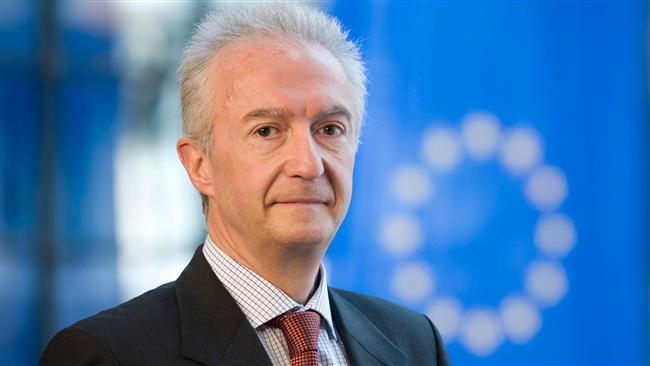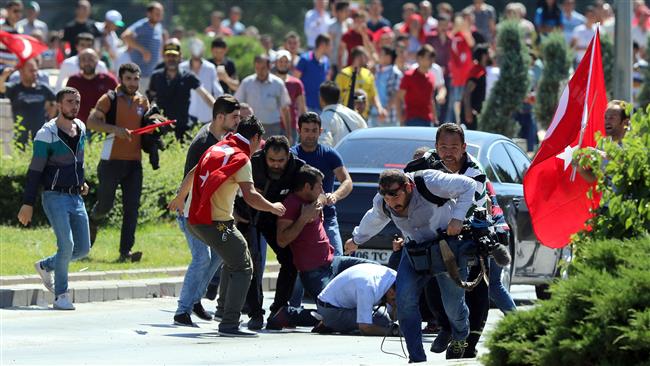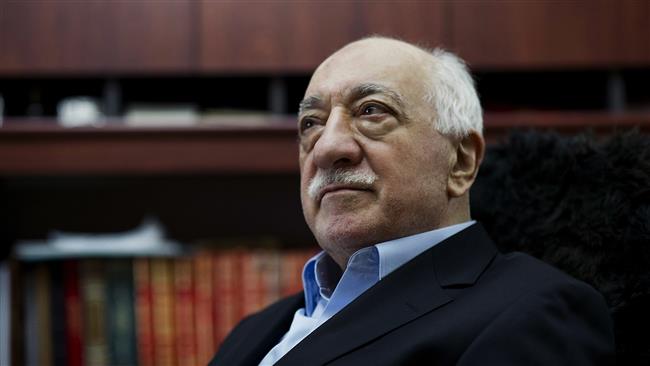Gulen network not seen as terrorist unless Turkey proves it: EU
The EU’s counter-terrorism chief has said that the bloc will not share Turkey’s view that the network of US-based opposition figure Fethullah Gulen is a terrorist organization unless Ankara provides concrete evidence to support its claim.
In a Thursday interview with Reuters, Gilles de Kerchove pointed to Ankara’s accusations against FETO, Turkish government’s acronym for Gulen’s network , that it was behind last year's failed coup in Turkey.
“As for FETO, we do not see it as a terrorist organization, and I do not believe the EU is likely to change its position soon,” he added.
On July 15, 2016, a faction of the Turkish military declared that it had seized control of the country and Erdogan’s government was no more in charge. The attempt was, however, suppressed a few hours later.
Turkey accuses Gulen of being behind a long-running campaign to topple the government via infiltrating the country’s institutions, particularly the army, police and the judiciary.
Gulen has denounced the “despicable putsch” and reiterated that he had no role in it.
Turkey, which remains in a state of emergency since the failed coup, has been engaged in a crackdown campaign against media and opposition groups suspected to have played a role in the botched coup.

So far, over 50,000 people have been arrested in Turkey on suspicion of having links to Gulen and the failed coup. More than 150,000 others, including military staff, civil servants and journalists, have been sacked or suspended from work over the same accusations.
Some of the detainees have been arrested for using ByLock messaging app which government says was used by the coup plotters.
“You need not only circumstantial evidence - like just downloading an app - but concrete substantive data which shows that they were involved...,” Kerchove said.
Rights groups and European governments have repeatedly criticized Ankara for the continued crackdown, saying it has mainly targeted dissent.
Turkey has long criticized its NATO allies, including the United States and Germany, for failing to condemn the abortive putsch strongly enough. Ankara has also urged Washington to extradite Gulen, but US officials say American courts require sufficient evidence to order his extradition.
Moreover, Germany, which has sharply criticized the mass arrests in Turkey, has refused to extradite people Ankara says were involved in the plot or linked to Gulen’s network.
“The decision on extradition is in the hands of all member states, and most of the time the judiciary, the independent judiciary, and they need hard evidence,” Kerchove pointed out.
‘All wars have rules. All of those rules have been broken’ by Israel
VIDEO | Report flags India’s violation of rights of Rohingya detainees
Turkey's foreign minister meets Syria's de facto leader in Damascus
'Next to impossible' to rescue patients from Gaza's Kamal Adwan Hospital: Director
VIDEO | Vietnam current prosperity
Report blames gasoil exports for shortage at Iranian power plants
VIDEO | Hind Rajab Foundation names Israeli war criminals vacationing after Gaza genocide
VIDEO | Australians rally for Gaza ahead of Christmas festivities












 This makes it easy to access the Press TV website
This makes it easy to access the Press TV website